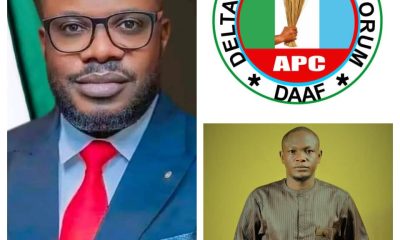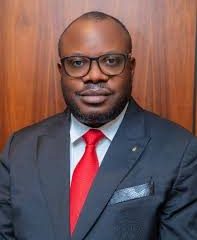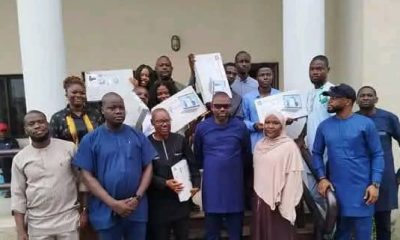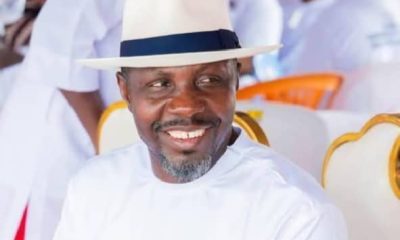National
Opinion: The Many Problems of President Bola Ahmed Tinubu

By Ode Markson Esq
President Bola Ahmed Tinubu’s inauguration on May 29th, 2023, was not met with the usual fanfare that follows a presidential inauguration. While there were scattered celebrations, the feeling was not shared across the country. This can be attributed to the fact that he was the first president in Nigeria’s history to receive more votes against him than for him.
Out of a total of 24,965,218 votes, Tinubu received only 8,794,726, with the rest going to his opponents. This means that for every one vote for Tinubu, there were at least two votes against him. For the first time in Nigeria’s history, a president was sworn in with fewer votes than the opposition.
This would not have been a problem if Nigeria were not as divisive as it has become. Following a divisive campaign and eight years of Nigeria’s greatest bigots, the 2023 elections exposed the thin lines that hold the Nigerian union together.
It was inevitable that the nearly 16 million people who did not vote, many of whom bear a grudge against him as a candidate and some who have refused to accept his presidency, would need to be convinced to provide the necessary support for governance and public policy. Without such public support, the acceptance and implementation of policies were bound to be opposed.
To make matters worse, Tinubu inherited an economy on life support. Inflation was rampant, and the previous government had borrowed massively and spent recklessly. Nigeria’s cardinal sin of fuel subsidy was no longer affordable. On its way out of government, the previous administration removed subsidies. On his inauguration day, Tinubu endorsed the subsidy removal, declaring, “Subsidy is gone.” However, the other problems persisted. The mounting debt, a significantly shrunk economy (from a GDP of nearly $574 billion pre-Buhari to just over $470 billion at the end of Buhari’s tenure), and millions of people who have fallen back into poverty, with a young population dreaming of leaving Nigeria, presented significant challenges.
What will Tinubu do?
Rather than debating this, I will compare Tinubu’s actions to those of another president who faced a similar situation: Javier Milei of Argentina. Both Milei and Tinubu removed fuel subsidies, liberalized the exchange rate, and pursued foreign policies aligning them with the West. However, the similarities end there. While Milei reformed the tax system, reduced taxes, and eliminated export taxes, his Nigerian counterpart did none of that. In fact, there were reports of tax increases. While Milei significantly reduced the cost of governance in the public service, leading to a budget surplus for Argentina for the first time in decades, his counterpart in Nigeria created the largest cabinet in Nigeria’s fourth republic with 49 ministers.
To be fair to Tinubu, the actions he took in removing subsidies and liberalizing the exchange rate were bound to be painful and controversial. However, his other actions should have set an example. He was supposed to set an example in cutting the cost of governance and living lean. Yet, the opposite has happened. The President and his entourage of 1,411 delegates spent 880 million to attend the Cop28 conference in Dubai. A 21 billion residence was commissioned for the Vice President, and the budget for the office of the chief of staff increased from 517 million Naira to 21 billion Naira. These actions sent the wrong signals. While the government called on citizens to make sacrifices and wait for the economy to turn around, it was living larger than life.
Yesterday, the citizens got tired and decided to protest. The real significance of this protest was that it sent a clear message to the government: enough is enough. As a woman at the protest ground said, “The government cannot enjoy on our behalf.” The citizens were clearly saying they won’t take this anymore. The government can do better. It can set an example. It can cut the cost of their lavish lifestyle, and if it does not, it will continue to multiply its problems.
In the past few weeks, public officials, traditional leaders, clergymen, and influencers have attempted to gaslight, cajole, caution, and literally stop the protest from happening. They tried to force citizens not to protest. It didn’t work. Can you stop a hungry man?
Mark Twain famously said, “Loyalty to country always, but to government only when it deserves.” The Tinubu government has to deserve the loyalty it has craved.
Javier Milei has not turned Argentina’s economy around, and he has other controversies, but one thing is clear: the government’s budget is balanced, inflation is cooling, and exports are increasing, leading to more currency inflows.
Will Tinubu overcome his many problems? I don’t know, I hope he does for the sake of all of us. For a man who has prepared for the presidency stince 1992, almost 3 decades, he should have known what he was inheriting. But whether or not he rises to the occasion, the citizens have drawn a line: Enough Is Enough!
By Ode Markson Esq.
Writes from Delta State, Nigeria.













